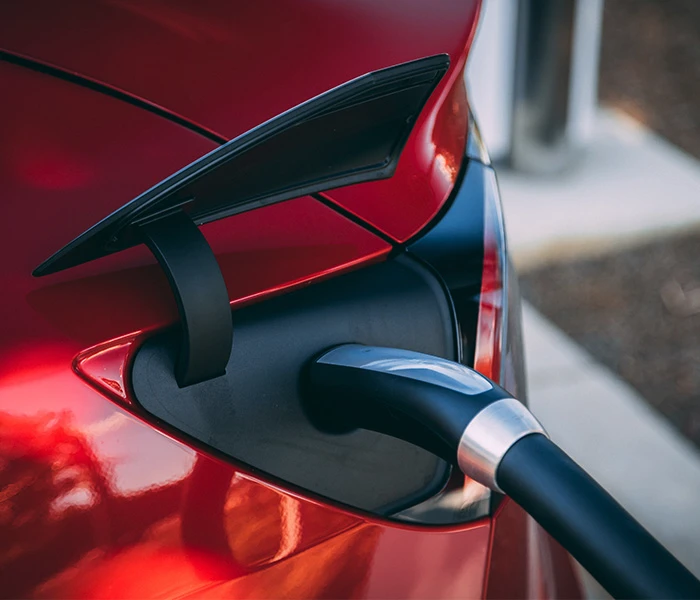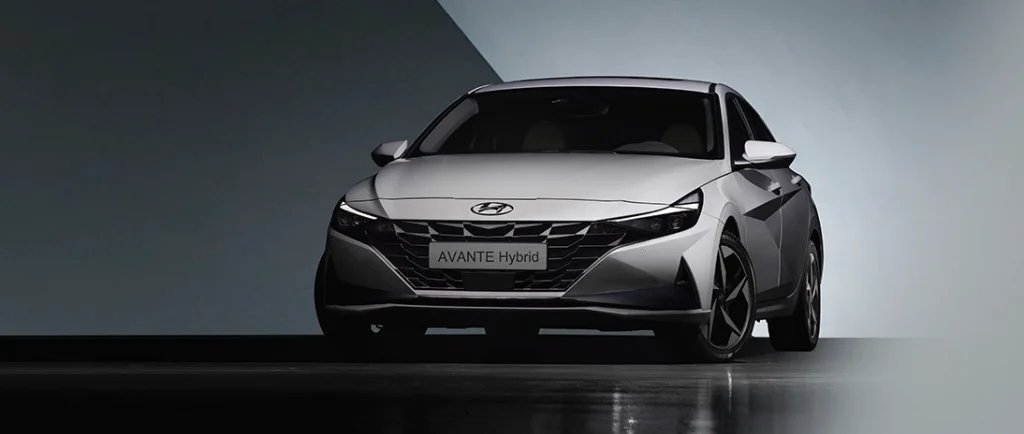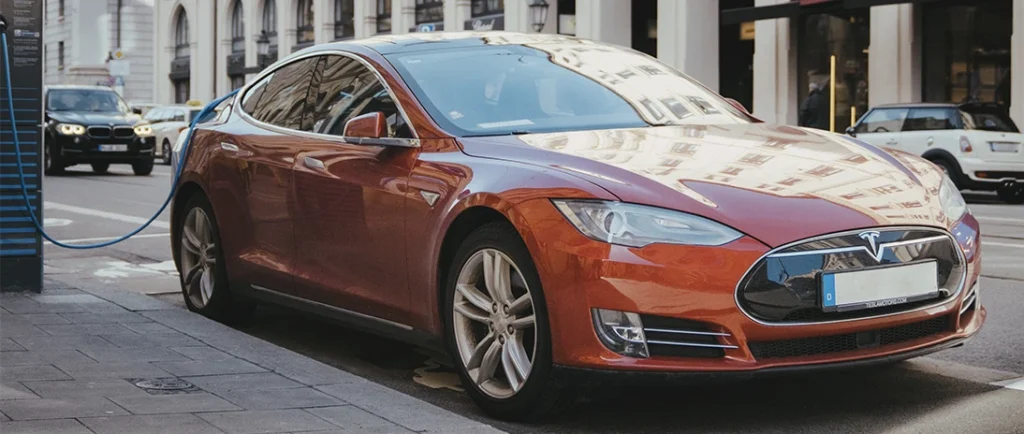

In an era where climate change concerns and environmental consciousness have taken centre stage, the automobile industry is transforming towards more sustainable modes of transportation. Among the pioneers of this eco-friendly evolution are hybrid and electric cars. These vehicles are at the forefront of reshaping the way we perceive driving, focusing not only on performance and style but also on minimizing our carbon footprint.
In the United Kingdom, where environmental awareness has become a societal norm, the choice between hybrid and electric cars presents an essential decision for environmentally conscious consumers. This comprehensive comparison delves into the core distinctions between these two green alternatives and helps you navigate the path towards a more sustainable driving future.
- What Is a Hybrid Car
- Types of Hybrid Cars
- What Is an Electric Car
- Types of Electric Cars
- Summary: Hybrid vs Electric
- In-Depth: Hybrid vs Electric
- Which One Should You Buy
- Is a Hybrid Car Right for You
- Is an Electric Car Right for You
- Tax Benefits When Buying Hybrid or Electric
Jump straight to the comparison >>
What Is a Hybrid Car
In the quest for more sustainable transportation options, hybrid cars have emerged as a bridge between traditional internal combustion engine vehicles and fully electric cars.
A hybrid car combines the power of both a conventional gasoline engine and an electric motor to provide improved fuel efficiency, reduced emissions, and enhanced performance.

✅ Advantages
- Fuel Efficiency: Integrating an electric motor allows hybrids to achieve better fuel economy than traditional gasoline vehicles. The electric motor assists the gasoline engine during acceleration, reducing the overall amount of fuel consumed.
- Reduced Emissions: Hybrid cars emit fewer greenhouse gases and pollutants than conventional gasoline vehicles. The electric motor’s contribution leads to cleaner operation and lower tailpipe emissions.
- Regenerative Braking: Hybrids often feature regenerative braking, which converts kinetic energy into electrical energy during braking. This energy is then stored in the battery for later use, improving overall efficiency.
- Smooth Acceleration: The instant torque delivery of electric motors results in smoother and more responsive acceleration, enhancing the driving experience.
- Lower Maintenance Costs: The regenerative braking system reduces wear on the brake pads, and the engine operates more efficiently, potentially lowering maintenance costs.
❌ Disadvantages
- Higher Initial Cost: Hybrid vehicles typically have a higher price tag than their conventional counterparts due to the additional technology and components required for hybridization.
- Limited Electric-Only Range: While plug-in hybrids offer extended electric-only driving ranges, most hybrids have limited electric-only capabilities, relying more on the gasoline engine during highway speeds.
- Less Charging Infrastructure: Non-plug-in hybrids do not require charging infrastructure like electric vehicles, so they can’t take full advantage of electric-only driving.
- Performance Trade-offs: In some cases, the added weight of the hybrid system can slightly affect performance, particularly in handling and responsiveness.
- Dependency on Gasoline: Hybrid vehicles still rely on gasoline, which means they are only partially free from the environmental impacts of fossil fuels.
Types of Hybrid Cars
Parallel Hybrid
The most common type of hybrid, parallel hybrids use the gasoline engine and the electric motor to power the vehicle. The electric motor assists the gasoline engine during acceleration, reducing fuel consumption and emissions. The car can run solely on electric power at low speeds or when idling.
Series Hybrid
The gasoline engine doesn’t directly drive the wheels in a series hybrid. Instead, it serves as a generator to recharge the electric motor’s batteries. The electric motor is solely responsible for driving the wheels. Series hybrids offer greater efficiency during city driving and in stop-and-go traffic.
Plug-in Hybrid (PHEV)
Plug-in hybrids combine the benefits of hybrid technology with the ability to recharge from an external power source. They typically have larger battery packs than non-plug-in hybrids, allowing longer electric-only driving ranges. PHEVs can be charged using a standard electrical outlet or a charging station, reducing the reliance on gasoline even further.
Mild Hybrid
Mild hybrids primarily use a smaller electric motor to assist the gasoline engine during acceleration. Unlike full hybrids, they cannot run solely on electric power. The electric motor also helps with regenerative braking, capturing energy that would otherwise be lost during braking.
What Is an Electric Car
Electric cars are a revolutionary alternative to traditional gasoline-powered cars. These vehicles rely entirely on electric motors and rechargeable batteries to propel themselves, offering a cleaner, quieter, and more sustainable driving experience.


✅ Advantages
- Zero Emissions: The most prominent advantage of electric cars is their zero tailpipe emissions. By running solely on electric power, EVs produce no exhaust gases, improving air quality and reducing greenhouse gas emissions.
- Lower Operating Costs: Electricity is generally cheaper than gasoline, resulting in lower fueling costs for electric cars. Electric cars also have fewer moving parts than internal combustion engines, reducing maintenance expenses.
- Quiet and Smooth Drive: Electric motors provide instant torque, resulting in smooth and quiet acceleration. The absence of a noisy engine enhances the overall driving experience.
- Regenerative Braking: Electric cars often feature regenerative braking, which converts kinetic energy into electrical energy during braking. This energy is stored in the battery for later use, improving overall efficiency.
- Reduced Dependence on Fossil Fuels: Electric cars reduce the world’s dependence on fossil fuels, promoting energy independence and sustainability.
❌ Disadvantages
- Limited Range: Range anxiety, the fear of running out of battery mid-journey, is a concern for some electric car owners. While battery technology has improved, electric cars still have a limited range compared to traditional gasoline vehicles.
- Charging Infrastructure: While charging infrastructure is expanding, it’s less ubiquitous than gasoline refuelling stations. This can be a challenge for those without access to home charging or workplace charging options.
- Longer Refueling Time: Charging an electric car takes longer than refuelling a gasoline vehicle. Even with fast-charging options, electric cars still require more time to recharge than filling up a tank with gasoline.
- Higher Upfront Costs: Electric cars tend to have higher upfront costs than traditional gasoline cars due to the cost of battery technology. However, prices have gradually decreased as technology advances and economies of scale come into play.
- Limited Model Variety: While the variety of electric car models is increasing, it’s still more limited compared to the range of gasoline-powered vehicles available on the market.
Types of Electric Cars
Battery Electric Vehicle (BEV)
Battery Electric Vehicles, or BEVs, are fully electric cars that operate solely on electric power. They are equipped with large battery packs that store electricity and power an electric motor. BEVs produce zero tailpipe emissions and are considered one of the cleanest forms of transportation available.
Plug-in Hybrid Electric Vehicle (PHEV)
PHEVs combine electric and gasoline power. They have larger battery packs than non-plug-in hybrids, allowing longer all-electric driving ranges. PHEVs can be recharged from an external power source and operate using gasoline when the battery is depleted.
Hybrid Electric Vehicle (HEV)
Hybrid Electric Vehicles, or HEVs, are not fully electric but use a combination of an internal combustion engine and an electric motor. Unlike plug-in hybrids, HEVs cannot be plugged into an external power source for charging. The electric motor assists the gasoline engine, improving fuel efficiency and reducing emissions.
Summary: Hybrid vs Electric
| Hybrid Cars | Electric Cars | |
|---|---|---|
| Overall Consideration | Ideal for those seeking efficiency without full electric commitment | Ideal for those prioritising zero emissions and environmental impact |
| Power Sources | Internal combustion engine + Electric motor | Electric motor + Rechargeable batteries |
| Performance & Efficiency | Improved fuel efficiency, regenerative braking | Instant torque, smooth acceleration, regenerative braking |
| Environmental Impact | Reduced emissions compared to traditional cars | Zero tailpipe emissions, minimal environmental impact |
| Charging Infrastructure | No charging infrastructure required | Charging infrastructure needed |
| Range Anxiety | No range anxiety, gasoline engine backup | Potential for range anxiety, depends on battery capacity |
| Financial Incentives | Limited incentives in some regions | Government incentives for adoption, reduced operating costs |
| Cost Considerations | Higher upfront cost, potential fuel savings | Higher upfront cost, reduced operating costs |
| Resale Value | Good resale value, competitive with gasoline cars | Competitive resale value due to demand for electric cars |
| Performance Trade-offs | Slight performance trade-offs due to added weight | Instant torque enhances performance |
| Suitable for | Those seeking improved fuel efficiency without relying solely on electric power | Those committed to zero emissions, shorter commutes, charging access |
| Charging Time | No charging time, gasoline engine refuels | Longer charging times compared to refuelling with gasoline |
| Convenience | No need for frequent charging, longer driving ranges | Convenience depends on charging access, limited range for some models |
In-Depth: Hybrid vs Electric
Performance and Efficiency
- Hybrid Cars: Ingeniously combine the power of both internal combustion engines and electric motors. This hybridisation allows seamless transitions between the two power sources, resulting in remarkable fuel efficiency. Hybrid cars balance performance and economy in transitioning from electric power during slow speeds or idling to the gasoline engine for higher speeds. The regenerative braking system in most hybrid models captures, and stores energy usually lost during braking, further enhancing fuel efficiency.
- Electric Cars: On the other hand, electric cars rely solely on electric motors powered by rechargeable batteries. This gives them the advantage of delivering instant torque and a smooth, quiet ride. With no tailpipe emissions, electric cars are environmentally friendly and offer a responsive and energy-efficient driving experience. The absence of a gasoline engine also means lower maintenance requirements and reduced operating costs over the vehicle’s lifespan.
Environmental Impact
- Hybrid Cars: Undoubtedly reduce greenhouse gas emissions compared to traditional gasoline-powered cars. However, since they still utilise internal combustion engines, their environmental impact is less minimal than fully electric cars. The amount of emitted pollutants is considerably lower, yet not negligible.
- Electric Cars: Are the champions of zero tailpipe emissions. As they rely solely on electric power, they produce no exhaust gases during operation, contributing significantly to air quality improvement in urban environments. By driving an electric car, you actively reduce carbon dioxide emissions, making a tangible difference in combatting climate change.
Charging Infrastructure
- Hybrid Cars: Don’t require charging infrastructure in the same way that electric cars do. Since they can operate using gasoline and electricity, the need for charging stations is eliminated. This makes hybrids more suitable for those who may not have easy access to charging points.
- Electric Cars: The charging infrastructure for electric cars has been steadily expanding across the UK. With a growing network of public charging stations, home-charging units, and workplace charging options, the convenience of charging an electric vehicle is becoming increasingly accessible. While charging times and distances between charging points were once concerns, advancements in technology have led to faster charging and improved battery range, making electric cars a viable option for daily commuting and even long-distance travel.
Range Anxiety
- Hybrid Cars: Have the advantage of not suffering from range anxiety, a common concern for fully electric vehicles. With the internal combustion engine as a backup, drivers of hybrid cars can continue their journeys even if they run out of electric charge.
- Electric Cars: Range anxiety, the fear of running out of battery mid-journey, has been a substantial obstacle to electric car adoption. However, recent electric vehicle models boast increasingly impressive ranges, often exceeding 200 miles on a single charge. Fast-charging options also alleviate this concern by allowing rapid top-ups during longer trips.
Financial Incentives
- Hybrid Cars: In the UK, financial incentives for hybrid vehicles have become more limited over time. The government’s Plug-In Car Grant, which provided a discount on the purchase price of eligible vehicles, originally covered some hybrids but has now been tailored to fully electric cars only.
- Electric Cars: The UK government has been actively promoting the adoption of electric vehicles through various financial incentives. The Plug-In Car Grant offers a substantial discount on the purchase price of eligible electric cars, making them more appealing to a broader range of consumers. Additionally, electric vehicle owners benefit from reduced road taxes, lower charging rates, and exemptions from congestion charges in certain areas.
Cost Considerations
- Hybrid Cars: Generally have a higher upfront cost compared to traditional gasoline vehicles due to the added complexity of their dual power systems. However, the potential savings on fuel expenses over time can offset this initial investment. Maintenance costs are also relatively lower, thanks to regenerative braking and reduced wear on the gasoline engine.
- Electric Cars: Typically have a higher upfront cost than hybrids due to the cost of the battery technology. However, prices have steadily decreased as battery technology advances and economies of scale come into play. The cost of electricity is significantly lower than that of gasoline, resulting in substantial savings on fuel. Moreover, the reduced number of moving parts in electric vehicles translates to lower maintenance and repair costs.
Resale Value
- Hybrid Cars: Although still a relatively recent innovation, have been on the market for several years. While they tend to retain their value better than traditional gasoline cars, their resale value may be lower than fully electric vehicles due to the growing demand for electric transportation.
- Electric Cars: Are newer to the market and benefit from the aura of cutting-edge technology and eco-friendliness. This can contribute to higher resale values compared to hybrid and traditional cars. As electric vehicle infrastructure and consumer demand continue to grow, the resale value of electric cars is likely to remain strong.
Which One Should You Buy
Choose a Hybrid Car Over an Electric Car: Consider buying a hybrid car for improved fuel efficiency and reduced emissions without relying solely on electric power. Hybrids are suitable for those with longer commutes or limited charging access, as they offer gasoline engine backup and do not require charging infrastructure.
Choose an Electric Car Over a Hybrid Car: Opt for an electric car when you prioritise zero tailpipe emissions, want to impact the environment substantially, and have access to convenient charging options. Electric vehicles are ideal for shorter commutes, urban driving, and a commitment to a cleaner, greener future.
Get in touch to get a personalised car finance quote →
Is a Hybrid Car Right for You
In an era of growing environmental awareness and a shift towards sustainable living, the choice of a vehicle carries more weight than ever before. Hybrid cars have emerged as a compelling option for those seeking to reduce their carbon footprint while enjoying the benefits of fuel efficiency and cleaner driving. But when exactly should you consider buying a hybrid car? In this article, we’ll explore the key factors that can guide your decision and help you determine if a hybrid is the right choice for you.
Your Daily Commute
Your daily commute is one of the most significant factors when contemplating a hybrid car purchase. If your daily driving routine involves a lot of stop-and-go traffic, such as city driving or congested urban areas, a hybrid’s regenerative braking and electric motor can significantly improve fuel efficiency. Hybrids excel when frequent acceleration and deceleration occur, as they can switch to electric power during low-speed operation. This translates to more miles covered on electric power and less reliance on the gasoline engine.
Driving Habits
Consider your driving habits and patterns. Do you frequently embark on long road trips, or is your driving primarily limited to short distances? A plug-in hybrid might be better if you often travel long distances. Plug-in hybrids offer an extended electric-only range, allowing you to drive for more miles on electric power before the gasoline engine kicks in. This can be particularly beneficial if you can access charging stations at home, work, or along your regular routes.
Environmental Commitment
If you’re passionate about reducing your carbon footprint and contributing to a greener planet, a hybrid car aligns well with your values. Hybrid vehicles emit fewer greenhouse gases and pollutants than traditional gasoline cars, making them more eco-friendly. By choosing a hybrid, you actively improve air quality and reduce the environmental impact of your transportation choices.
Fuel Efficiency and Savings
Hybrid cars are known for their fuel efficiency, especially in city driving conditions. A hybrid can be a wise investment if you want to save money on fuel expenses in the long run. Combining an electric motor and a gasoline engine allows hybrids to achieve impressive miles per gallon (MPG) figures, reducing gas pump visits and lowering fuel costs.
Financial Incentives
In many regions, including the United Kingdom, governments offer financial incentives to encourage the adoption of hybrid vehicles. These incentives can include tax breaks, rebates, and grants that make hybrid cars more affordable. Before deciding, research the incentives available in your area to see if they align with your budget and financial goals.
Resale Value
Hybrid cars often have a competitive resale value due to their reputation for fuel efficiency and eco-friendliness. As the demand for more sustainable transportation options grows, hybrids will likely retain their value better than traditional gasoline vehicles. If you plan to resell your vehicle in the future, a hybrid can offer a more substantial resale value compared to conventional cars.
Charging Infrastructure
Unlike fully electric vehicles, hybrids do not require charging infrastructure. If you do not have access to charging stations at home or work, a hybrid can provide a hassle-free driving experience. This can be particularly beneficial for individuals living in areas with limited charging options or unpredictable driving patterns.
Consideration of Other Alternatives
While hybrid cars offer numerous benefits, it’s essential to consider other alternatives. A fully electric vehicle might be more suitable if your daily driving patterns align well with electric-only driving and you have reliable access to charging stations. On the other hand, if you primarily drive long distances and want to reduce your carbon footprint without worrying about charging infrastructure, a plug-in hybrid could be the optimal compromise.
Final Thoughts
The decision to buy a hybrid car is a personal one that should be based on a careful evaluation of your driving needs, environmental concerns, budget, and lifestyle. If your daily commute involves frequent city driving, you’re committed to reducing your carbon footprint, and you want to enjoy the benefits of fuel efficiency, a hybrid car might be an excellent fit for you. By aligning your priorities with the advantages of hybrid technology, you can make a decision that benefits you and contributes to a more sustainable future.
Is an Electric Car Right for You
As the automotive industry undergoes a transformative shift towards sustainability, electric cars have gained considerable traction as a cleaner and greener alternative to traditional gasoline-powered vehicles. If you’re contemplating a switch to an electric car, evaluating whether it aligns with your lifestyle, driving patterns, and values is essential. Here are some key factors to consider when determining if an electric car is the right choice for you.
Environmental Commitment
An electric car could be an ideal fit if you’re passionate about reducing your carbon footprint and contributing to a cleaner environment. Electric vehicles produce zero tailpipe emissions, which means they do not contribute to air pollution or greenhouse gas emissions. By driving an electric car, you actively participate in the global effort to combat climate change and promote cleaner air quality.
Daily Driving Patterns
Consider your daily driving patterns and commute length. Electric cars are particularly well-suited for urban and suburban environments with shorter commutes. Suppose your daily driving needs fall within the typical range of an electric car’s battery. In that case, you can maximize the benefits of electric-only driving without worrying about running out of charge. However, you must plan for charging infrastructure if you frequently embark on long road trips.
Charging Access
Access to charging infrastructure is a critical consideration for electric car owners. Do you have a dedicated parking space at home where you can install a charging station? Many electric car owners charge their vehicles overnight, taking advantage of lower electricity rates. If you don’t have home charging capabilities, consider the availability of public charging stations in your area and workplace charging options. Charging infrastructure is continually expanding, but ensuring it meets your daily needs is essential.
Charging Time
Electric cars require longer refuelling times compared to traditional gasoline vehicles. Charging times can vary depending on the charger’s speed and your vehicle’s battery capacity. This might not be a significant concern if you can charge your car overnight at home. However, if you frequently rely on fast charging stations, consider how this might impact your daily routine and travel plans.
Range Requirements
Range anxiety, the fear of running out of battery before reaching your destination, is a common concern for electric car buyers. Advances in battery technology have significantly increased the range of many electric vehicles, often exceeding 200 miles on a single charge. Evaluate whether the range offered by available electric cars meets your daily and occasional long-distance driving needs. If you opt for a plug-in hybrid, you’ll have the flexibility of using gasoline for longer trips.
Financial Considerations
The cost of purchasing an electric car can be higher than that of a traditional gasoline vehicle. However, take into account the long-term savings on fuel and maintenance. Electricity is generally cheaper than gasoline, and electric cars have fewer moving parts, potentially lowering maintenance costs over time. Additionally, some governments offer incentives such as tax rebates and grants to encourage electric car adoption.
Resale Value
As the demand for electric cars grows and the automotive industry transitions towards cleaner technologies, electric vehicles will likely hold their value well. Consider the potential resale value of an electric car compared to a traditional gasoline vehicle when evaluating the overall cost of ownership.
Personal Comfort and Convenience
Test-driving an electric car can give you a feel for its performance, handling, and overall driving experience. Some drivers enjoy electric vehicles’ smooth and quiet operation, while others appreciate the instant torque electric motors provide. Consider how an electric car aligns with your driving preferences and comfort.
Infrastructure Development
Stay informed about the ongoing development of charging infrastructure in your area. Governments and private companies are investing in expanding charging networks, making electric car ownership more convenient. Research the availability of charging stations along your regular routes and at potential destinations.
Final Thoughts
The decision to buy an electric car is a significant one that depends on various factors. By considering your environmental values, daily driving habits, charging accessibility, financial considerations, and personal comfort, you can make an informed decision that aligns with your lifestyle and goals. As electric car technology evolves and charging infrastructure expands, the transition to an electric car presents an exciting opportunity to contribute to a more sustainable future while enjoying the benefits of innovative and eco-friendly transportation.
Tax Benefits When Buying Hybrid or Electric
The UK government offers several tax benefits and incentives to encourage the adoption of hybrid and electric vehicles.
- Plug-In Car Grant: The UK government provides a Plug-In Car Grant for eligible electric and plug-in hybrid vehicles. This grant offers a discount on the purchase price of these vehicles, making them more affordable. The grant amount and eligibility criteria may vary based on the vehicle’s emissions and electric range.
- Reduced Vehicle Tax (VED): Electric vehicles are eligible for reduced or zero Vehicle Excise Duty (road tax) rates. This means lower annual road tax payments for electric vehicle owners compared to traditional gasoline or diesel vehicles.
- Company Car Tax (Benefit-in-Kind): Electric vehicles and certain low-emission hybrids benefit from lower company car tax rates. This can make electric and hybrid company cars more attractive to both employers and employees.
- Capital Allowances: Businesses that purchase electric and certain low-emission vehicles may be eligible for enhanced capital allowances, allowing them to claim tax relief on the cost of the vehicle.
- Congestion Charge and Ultra Low Emission Zone (ULEZ) Exemptions: In London, electric vehicles are typically exempt from the Congestion Charge and the ULEZ fees, providing cost savings for driving in these zones.
- Fuel Savings: While not a direct tax benefit, electric and hybrid vehicles offer fuel savings compared to traditional internal combustion engine vehicles. Lower fuel costs can contribute to long-term financial savings.
It’s important to consult official government sources or seek advice from professionals to confirm the current status of tax benefits and incentives for hybrid and electric vehicles in the UK. Additionally, keep in mind that these incentives might evolve as the government continues to promote sustainable transportation and address environmental concerns.
Please note that these incentives may have changed or evolved since writing this post. It’s recommended to verify the current status of these incentives before making any decisions.
Conclusion
In the dynamic landscape of green automotive alternatives, both hybrid and electric cars offer compelling advantages for environmentally conscious consumers in the United Kingdom. Hybrid vehicles provide a bridge between traditional gasoline cars and fully electric ones, offering improved fuel efficiency and reduced emissions. On the other hand, electric cars stand as the pinnacle of sustainability, with zero tailpipe emissions and a rapidly expanding charging infrastructure. The choice between hybrid and electric ultimately depends on driving habits, charging accessibility, budget, and environmental commitment.
As the UK government continues to invest in sustainable transportation solutions and charging infrastructure, the allure of electric vehicles grows stronger. Financial incentives, reduced operating costs, and increasing battery range make electric cars appealing to those looking to impact the environment profoundly. However, hybrids still have their merits, particularly for those who require flexibility in driving ranges and may not have consistent access to charging stations.
Whether you opt for a hybrid or an electric vehicle, the journey towards a greener future starts with a single choice. With the automobile industry accelerating towards electrification, the roads ahead are paved with the promise of reduced emissions, enhanced efficiency, and a cleaner planet. By understanding the differences between hybrid and electric cars, you’re empowered to make an informed decision that aligns with your values and driving needs, driving us collectively toward a more sustainable tomorrow.
Get in touch and let us save you time, money and effort getting you the car of your dreams.
info@dorsiafinance.co.uk | 01522 420 420


